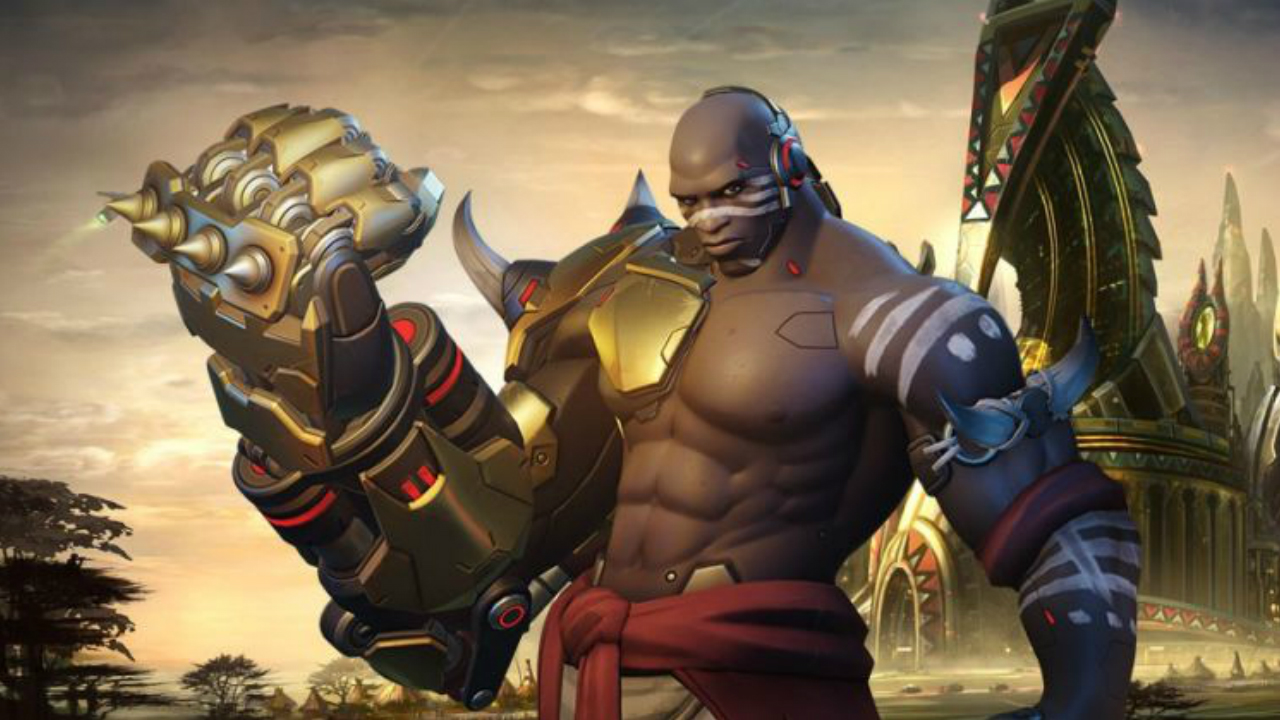Forget new heroes... it's curing Overwatch's culture of poor sportsmanship that should remain Blizzard’s top priority
How foul play is pushing Overwatch into the brink of an identity crisis
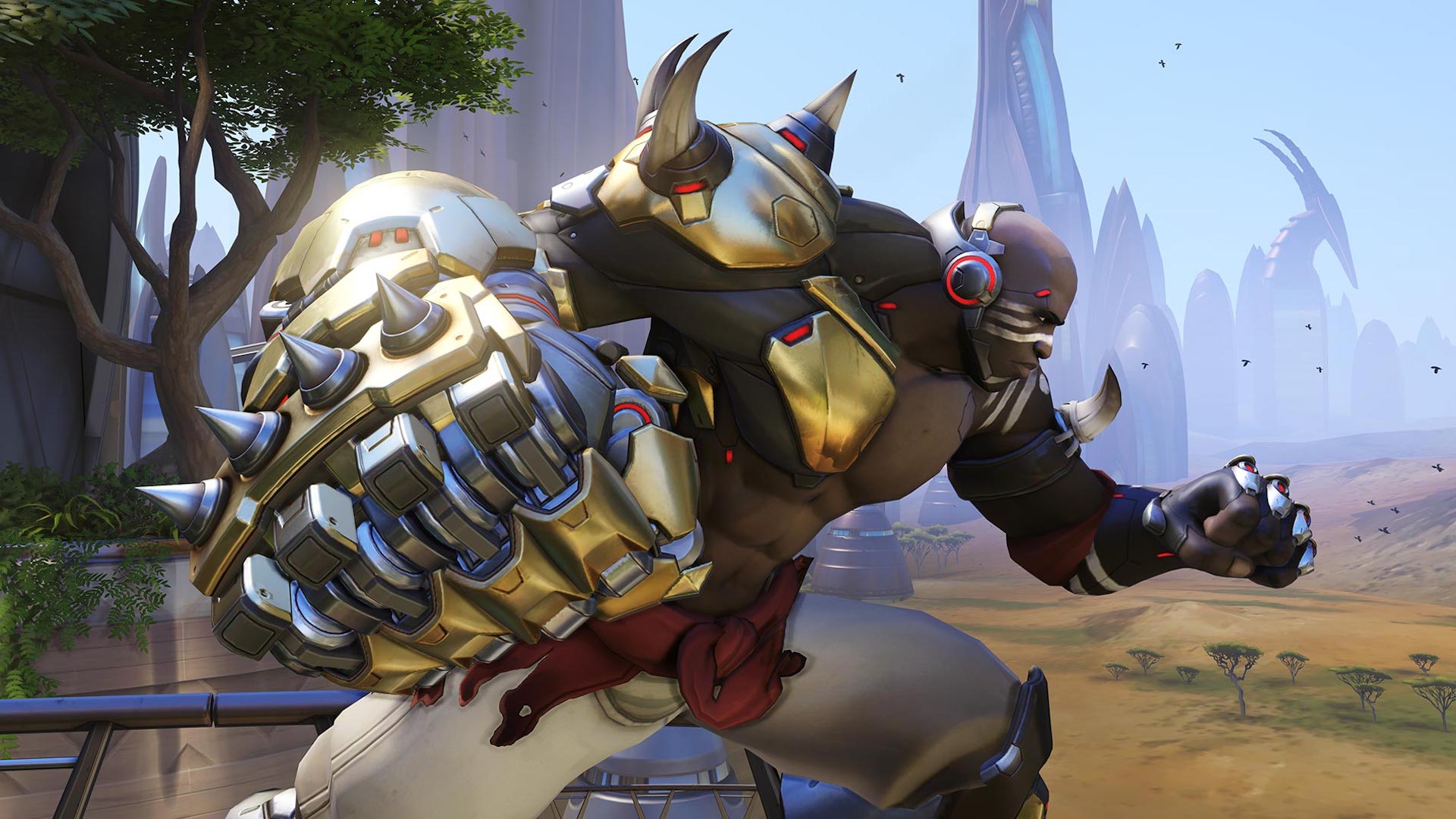
I adore Overwatch. It's one of the few games I've had the pleasure of consistently enjoying for over a year now (up there next to, unsurprisingly, World of Warcraft). But Blizzard's multiplayer masterpiece is in danger. A spirit of intolerance and spite has attached itself to Overwatch like a parasite, devolving the game into something that goes against its very essence as a celebration of diversity, acceptance and freedom of self-expression.
What began as fraternising in-jokes about Hanzo mains and Torbjorn ‘Play Of The Games’ has turned into a culture of mean-spirited harassment towards those who refuse to strictly abide to competing interpretations of Overwatch meta. Players now send disgustingly abusive messages to someone for picking an unpopular character before the match has even started, or will deliberately throw games just to express their dissatisfaction with their teammates.
This vocal minority of players are a threat to the very ideals that Overwatch was founded on, continually pushing the game further towards a crisis of identity. But what can be done? Blizzard is in a difficult position where even the slightest gestures or changes can generate ripples felt across the community, but it also has to do something.
How are Blizzard reacting to community toxicity?
In recent weeks, it appears as though Blizzard’s idea of ‘something’ is starting to take form and, while these measures have arrived much later than you’d hope for, they at least mark a step in the right direction. Overwatch lead Jeff Kaplan and the rest of the dev team have also been more forthright and open in expressing their own dissatisfaction with the rising levels of toxicity in the game, which has apparently stymied production on future content such as characters, maps, and modes.
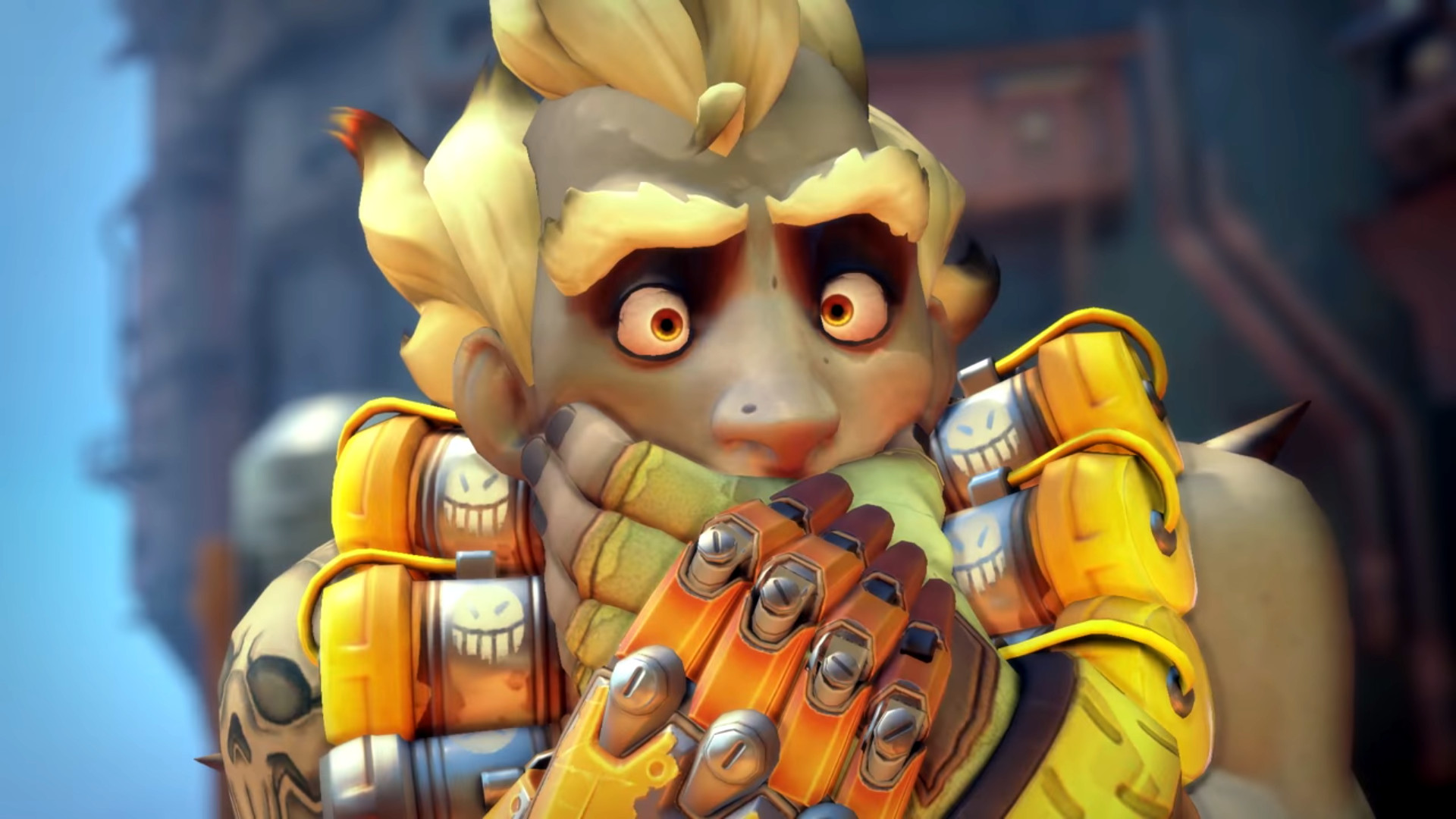
"The bad behaviour is not just ruining the experience for one another but the bad behaviour is actually making the game progress at a much slower rate”, said Kaplan during one developer update video. Additionally, writing in a forum post a few weeks earlier, he told another dispirited Overwatch player that “it really bums us out to spend so much time punishing people for being bad sports. We like making cool, fun game systems - that's what we do for a living. But because people seem to lack self-control or because people like to abuse anonymity and free speech, we're put in a position of spending a tremendous amount of our time and resources policing the community.”
And those resources have finally manifested in the rollout of a number of new disciplinary policies for Overwatch since the launch of Competitive Season Six. Players on console can finally report others who aren’t behaving appropriately, permanent bans are now a feasible punishment for repeat offenders, and crackdowns on those who manipulate their Season Rating have been significantly ramped up. According to Blizzard, this is just the beginning of a renewed impetus in the fight against player misconduct.
But these reprimands also come wrapped up in a plea. In that same update video, Kaplan appeals to the entire Overwatch playerbase to make more of an effort to foster the positive space of play that Blizzard has always envisioned for its game. If you watch it as a long-time Overwatch player, who’s been there through all of the game’s ups and downs, it’s incredibly disheartening; like witnessing a sweet-natured substitute teacher plead with his classroom to please stop throwing pens at each other.
Sign up to the GamesRadar+ Newsletter
Weekly digests, tales from the communities you love, and more
But, more than that, it speaks to a wider problem that Blizzard is going to have a real challenge in rectifying: you can change the rules of the game as much as you want, but how do you change the very culture and ethos of the community itself?
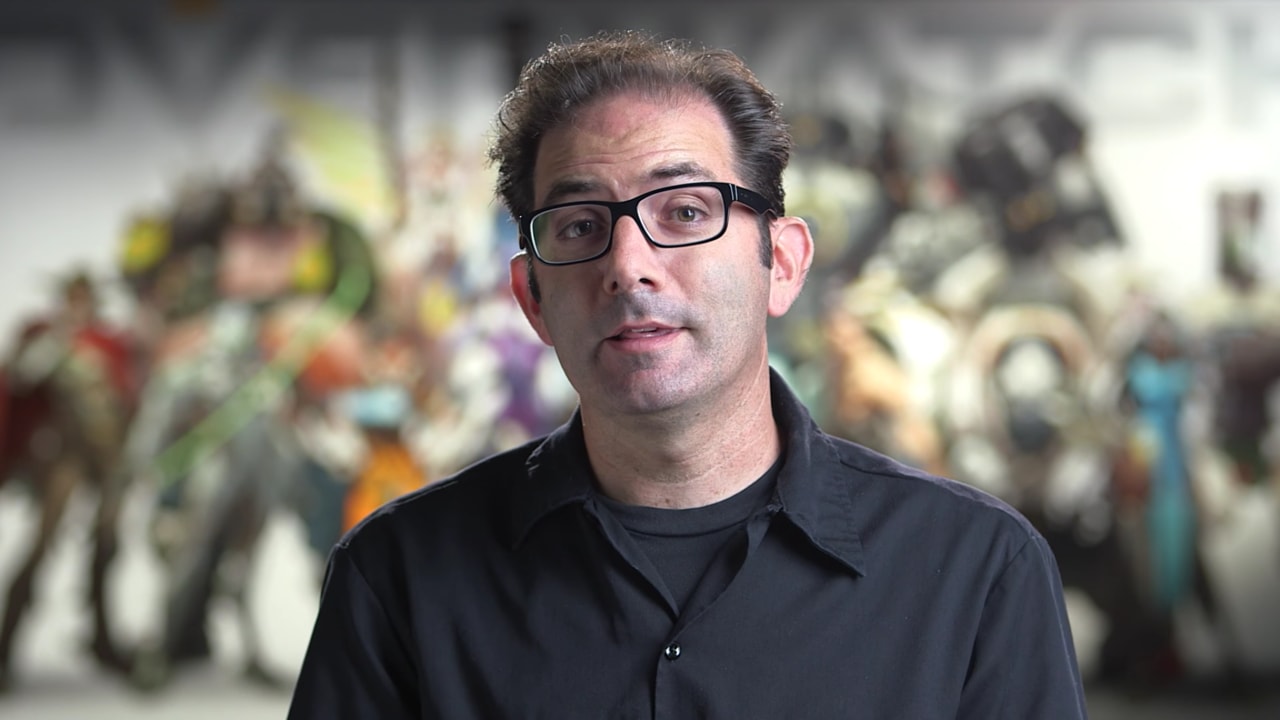
Challenging a single person’s ideas and attitudes on matters of abuse and malpractice is hard enough, but the toxic tribe within the Overwatch community is a hive mind of thousands, running on a vicious cycle where every instance of misconduct either encourages the miscreants to continue their tirade of harassment, or alienates the well intentioned players from partaking at all. The dissemination of values across culture is something that philosophers have been discussing and debating over for eons, meaning that there’s no uniform solution for Blizzard when it comes to encouraging inclusivity and fairness in Overwatch, but a great maze of potentially viable options.
What can Blizzard learn from Destiny's community management?
Perhaps the studio could learn a thing or two from one of its relatives in the extended Activision Blizzard family. With Destiny 2, Bungie has been pretty on it in terms of community management, implementing extensive options for reporting players on a variety of in-game offences. Whether someone is being abusive and unsporting, or they’re simply AFK, fireteam members can be booted out of a game with impressive speed and efficiency as soon as you let Bungie know of the offense.
Bungie has also made sure that anyone who takes part in Guided Games - the channel through which strangers can play together in Strikes, Nightfalls, and Raids - must agree to a 'Guardian Oath'; a set of rules and values that outlines the studio's vision for good behaviour and fair play. There’s nothing necessarily binding about the agreement, but the very fact that anyone and everyone must hit the ‘I Accept’ button before jumping into Guided Games is as an explicit and direct form of communication from Bungie about their expectations for player behaviour. At the very least, it lets people know that there are guidelines in place, and that these guidelines are there to benefit them, as well as the community at large.
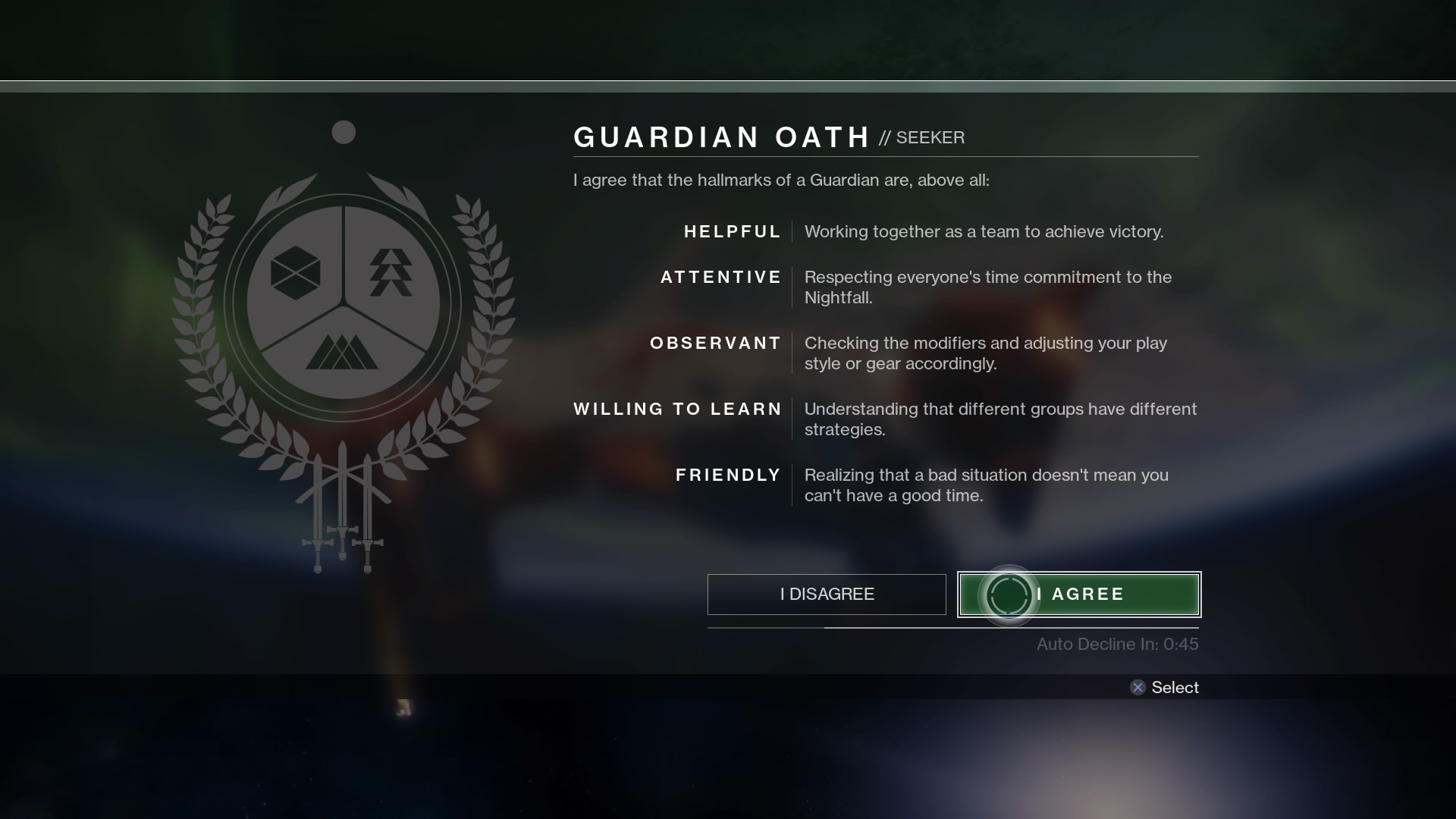
While Blizzard does have a general code of conduct for Battle.net, the concept of an Overwatch-specific code, which you’d have to sign up to before playing competitively, has been floated by players in the past, and could well be a viable step for the studio to take in its ongoing efforts to tackle toxicity. Again, the impact of a code of ethics is entirely dependent on whether its participants decide to abide by it, but if Blizzard makes it clear to players that doing so will result in a better, healthier Overwatch (backed up by the threat of punishment to those who break it), then that may well be motivation enough. In business, codes of conduct have been popularly described as a ‘necessary, but not sufficient’ means of establishing a positive culture, which at least makes it one of many important stepping stones for Blizzard to pursue in its quest to cure Overwatch of its caustic contagion.
"Handing out cosmetic items for exceptional team play might be a nice dangling of the carrot to motivate those who are typically less responsive to the whipping of the stick"
Kaplan has also stated that Blizzard is looking at more avenues for rewarding good behaviour in Overwatch but, so far, it’s unclear what these kind of rewards might look like, or how Blizzard could even measure good behaviour besides ‘don’t be a dick’. As much as I like the idea, I can’t imagine the studio would ever use loot boxes as an incentive. Even so, handing out cosmetic items at the end of each season for exceptional team play or healthy track records might be a nice dangling of the carrot to motivate those who are typically less responsive to the whipping of the stick.
Incidentally, EA’s upcoming multiplayer shooter, Star Wars Battlefront 2, awards more Battlepoints (the currency used to spend on heroes, vehicles and other pickups) to players who work together as part of squad or play the objective instead of selfishly glory-hunting for kills. If you’ve ever experienced a match in Overwatch, you’ll know that getting certain team-mates to focus the objective can be a huge source of frustration for the more supportive or cooperative players, so a more tangible rewards system akin to something like this could be game-changing.
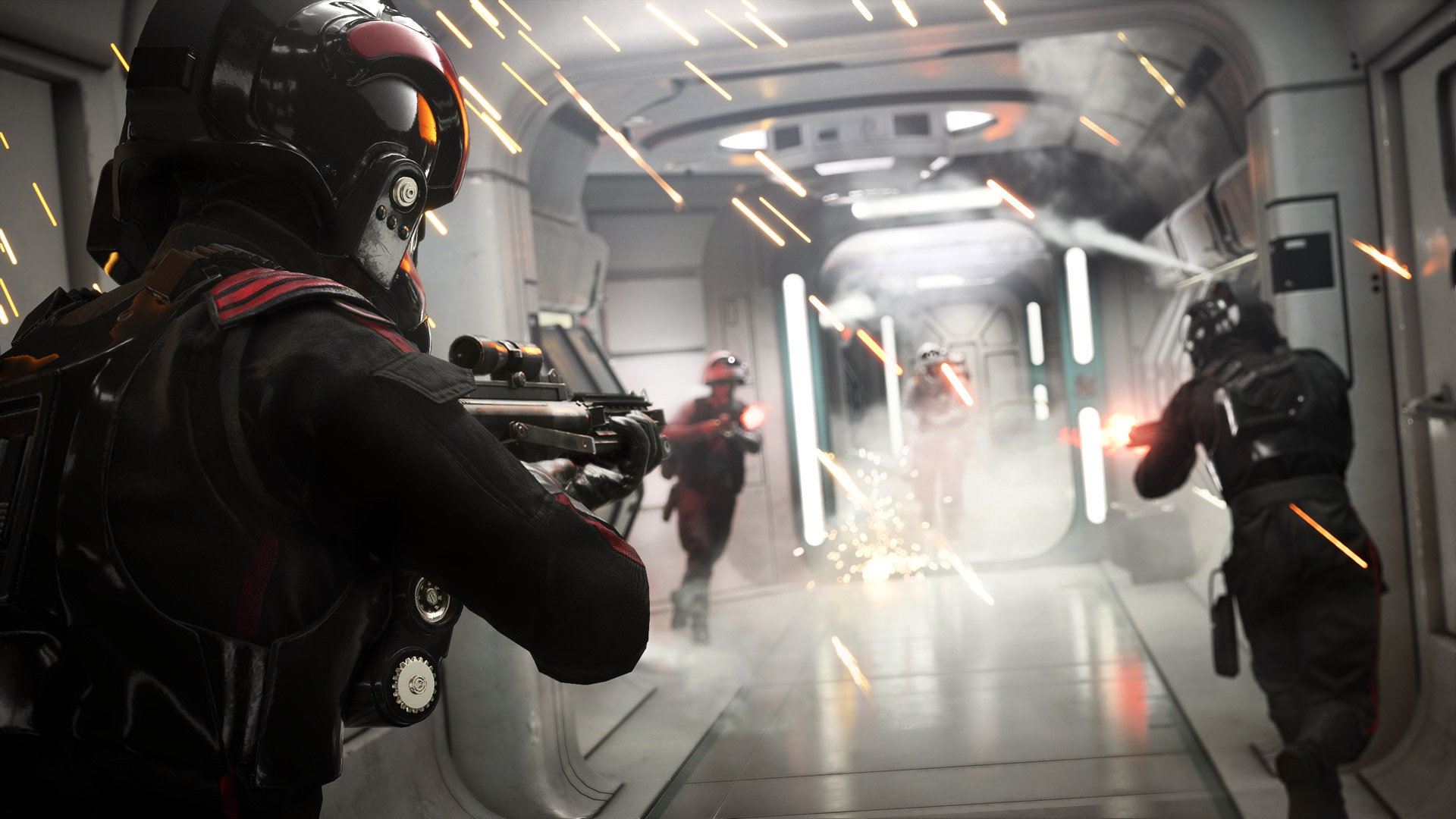
Alternatively, those amongst the community who dutifully and accurately report on wrongdoing could also be shown some appreciation from Blizzard, and a system of community-led moderation might not be a half bad idea for separating the good eggs from the bad. These pull factors for incentivizing fair play are just as important as push factors for deterring delinquency, and might allow Blizzard to engage more actively with the healthier circles among the Overwatch community, rather than constantly focusing on its responsibilities as a disciplinarian.
These are, of course, all practical solutions to a problem that is ideological in character. At its core, Blizzard’s fight against toxicity is a conflict of ideas over what Overwatch represents as a shared space between teammates and competitors, which is hardly a trivial matter. So, while Blizzard has expressed dissatisfaction with having to delay future content as a result of being caught up in this crisis, perhaps that’s the way it needs to be for now. Overwatch can be decked out with as many new heroes, maps and modes as it likes, but if it doesn’t free itself from this current zeitgeist of sneering cynicism, narrow-minded nastiness, and all around poor sportsmanship, all of that content is wasted on a community that actively discourages positive play.
Don't miss our survival tips for playing Overwatch Mystery Heroes and see the fan-made Overwatch zombie mode
I'm GamesRadar's Features Writer, which makes me responsible for gracing the internet with as many of my words as possible, including reviews, previews, interviews, and more. Lucky internet!
